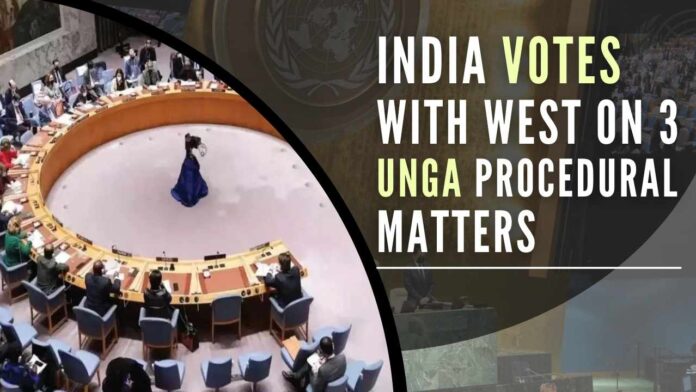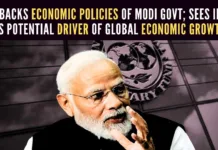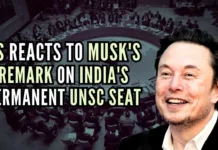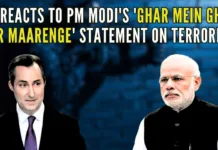
India votes to reject Russia’s call for a secret vote on Ukraine at UNGA
India has voted with the West on three procedural matters in the UN General Assembly (UNGA) for a secret ballot in the UN General Assembly on a draft resolution to condemn Moscow’s “illegal” annexation of four regions of Ukraine, favoring a public vote on the text along with over 100 other nations. India favored a public vote on the text along with over 100 other nations.
Russia which had launched a missile barrage on Ukraine a few hours earlier lost all three votes on the procedural matters.
India voted to reject Russia’s demand for a secret ballot in the UN General Assembly on a draft resolution to condemn Moscow’s “illegal” annexation of four regions of Ukraine, with New Delhi favouring a public vote on the text along with over 100 other nations. Moscow’s demand for a secret ballot was rejected after 107 UN member states, including India, voted in favour of a recorded vote.
UN General Assembly voted on a motion by Albania that demanded action on the draft resolution that would condemn Russia’s “illegal so-called referendums” and “attempted illegal annexation” of the Donetsk, Kherson, Luhansk, and Zaporizhzhia regions of Ukraine to be taken by a recorded vote.
External Affairs Minister S Jaishankar kept the world in suspense on how India would vote on the upcoming resolution condemning Russia’s annexation of parts of Ukraine. When the Assembly met on Monday morning to discuss the resolution it became embroiled in a controversy over whether the voting should be by secret ballot necessitating the procedural votes.
The Assembly resolution condemning Russia’s annexation of four Ukrainian regions is expected to come up for a vote in the Assembly on Wednesday or Thursday.
It is nearly identical to the resolution that was vetoed by Russia last week in the Security Council. India had abstained in the Council vote.
To preempt Moscow’s anticipated move to have the resolution decided by secret ballot in the Assembly, Albania proposed a motion to have an open vote. Despite Russia’s objections, it was put to vote and it was carried by 107 votes to 13, with 39 abstentions.
Russia then asked for another vote on the matter, which Assembly President Csaba Korosi ruled would be a vote to reconsider the motion for open voting that was approved. But before it could be voted Russia’s Permanent Representative Vasily Nebenzia objected to Korosi’s ruling and his challenge was put to vote.
Showing Moscow’s isolation in Ukraine, it was defeated, getting only 14 votes, with 104 against it and 38 abstentions. When the motion to reconsider open voting was put to vote, it got 16 votes to 104 against with 34 abstentions, marking Moscow’s third defeat of the day.
India joining the West against Russia on procedural matters is not necessarily a precursor to a change in New Delhi’s neutrality in voting on substantive matters involving Russia’s invasion of Ukraine.
Procedural votes are not on substantive matters and India had already voted with the West, once in the Council and another time in the Assembly, on the procedural issue of Ukraine’s President Volodymyr Zelensky addressing meetings remotely but abstained on resolutions condemning Moscow.
Unlike the Council, the Assembly does not have enforcement powers, but its votes carry moral authority. In reaction to Moscow’s veto in the Council in February soon after the invasion began, the Assembly took up a similar resolution condemning Russia’s invasion of Ukraine and demanding it withdraw its troops. It was passed with 141 votes, with India among the 35 abstaining.
The West is now on a mission to improve that tally in the vote this week.
Asking for a secret ballot, Nebezia said that countries were being unduly pressured to vote with the West and a secret vote would shield those who were against the resolution but could not publicly vote their intent.
During the debate on the resolution, Russia and Ukraine called each other terrorist nations, with Nebenzia citing the explosion on its vital bridge connecting it to Crimea, which it had annexed in 2014.
“Russia has proven once again that it is a terrorist state,” through the latest missile attacks which had endangered even his own relatives, Ukraine’s Permanent Representative Sergey Kyslytsya said.
In a personal attack on the Russian diplomats, he said that the chamber is filled with “the smell of smouldering human flesh” when they enter it with a “trail of blood”.
[With Inputs from IANS]
PGurus is now on Telegram. Click here to join our channel and stay updated with all the latest news and views
For all the latest updates, download PGurus App.










